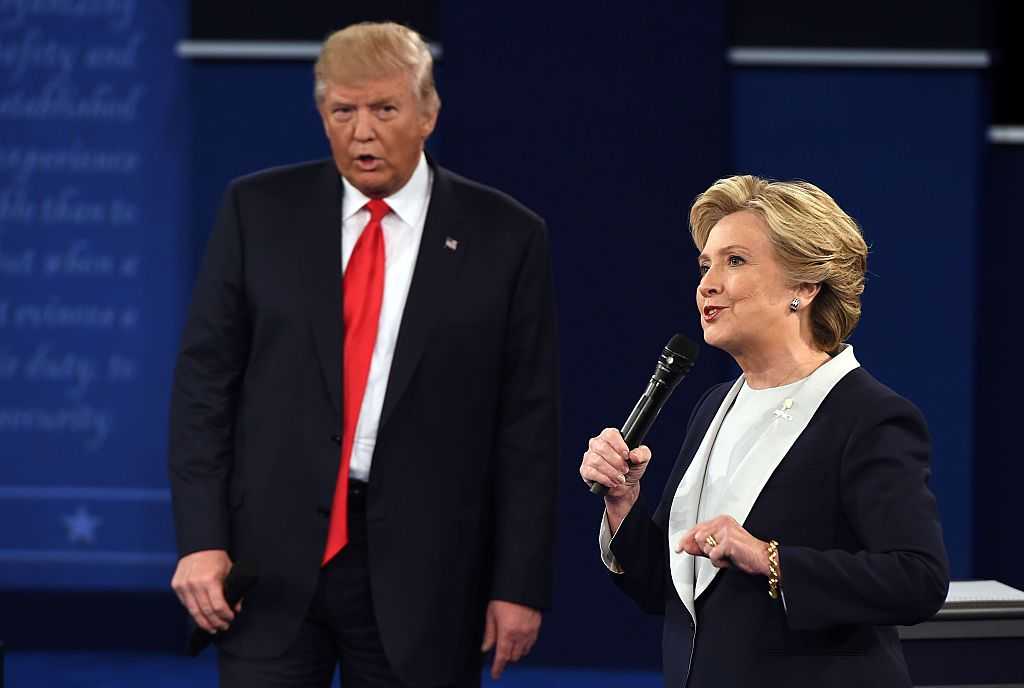Despite sharing a plethora of theological beliefs about Jesus, the Bible and morality, evangelical Christians — much like the rest of America — are sharply divided this election cycle.
While 45 percent of evangelicals who plan to vote recently told LifeWay Research they support Republican presidential candidate Donald Trump, 31 percent opted for Democratic contender Hillary Clinton — and 9 percent chose a third-party candidate.
But, how can people who share so many of the same beliefs about God, the Bible, moral truth and eternity end up being so splintered when it comes to the nation’s presidential prospects?
As it turns out, the study affirmed some significant divides along racial and political lines.

“This group of Christians share the same core beliefs — but they don’t vote the same way,” Scott McConnell, executive director of LifeWay Research, said in a statement. “There are significant cultural and political divides among evangelicals that won’t easily go away.”
Before I continue, it’s probably wise to explain the narrow methodology LifeWay uses in defining evangelicals.
According to the research firm, evangelicals strongly agree that the Bible holds the highest authority, they believe it is important to encourage others to believe in Jesus, they see Christ’s death as the “only sacrifice that could remove the penalty” of sin and they believe salvation can only come through Jesus.
Again, these beliefs don’t seem to universally carry over into a solitary evangelical perspective in the political arena.
Just consider the fact that 65 percent of white evangelicals supported Trump in the survey, compared to 15 percent of African American, Hispanic and Asian evangelicals. Likewise, support for Clinton was at just 10 percent among white evangelicals, compared to 62 percent for black, Hispanic and Asian evangelicals.
But the divide isn’t only along racial lines, as political affiliation also plays a major role. In fact, 75 percent of evangelicals who call themselves Democrats said they’d vote for Clinton; likewise, 75 percent of evangelicals who call themselves Republican chose Trump, showing that party affiliation holds a profound sway, even among the faithful.
In addition to exploring the racial and political divide, the survey also revealed the issues most important to this voter cohort, finding that the economy (26 percent), national security (22 percent) and personal character (15 percent) were the three most cited issues of concern.
Interestingly, two issues that some might assume evangelicals care about due to their potential impact on culture — Supreme Court nominees and religious freedom — were only mentioned by 10 percent and 7 percent of evangelicals, respectively.

It’s important to note that this survey was conducted between Sept. 27 and Oct. 1; this was before the second presidential debate and it also preceded news stories about numerous women who have raised sexual assault allegations against Trump — claims that could have an impact on where evangelicals, among others, stand on the 2016 presidential race.
The online survey, which included 1,000 respondents, had a sampling error that didn’t exceed plus or minus 3.1 percentage points. Read the entire study here.
Another recent survey of pastors found that they, too, are both divided and conflicted about what they’ll do on Nov. 8.
While not strictly limited to evangelical preachers, a LifeWay Research study conducted from Aug. 22-Sept. 16 found that 32 percent of pastors said they’d vote for Trump, 19 percent selected Clinton and 4 percent chose Libertarian candidate Gary Johnson. But the most shocking statistic? Forty percent said they were still undecided about whom to vote for.



